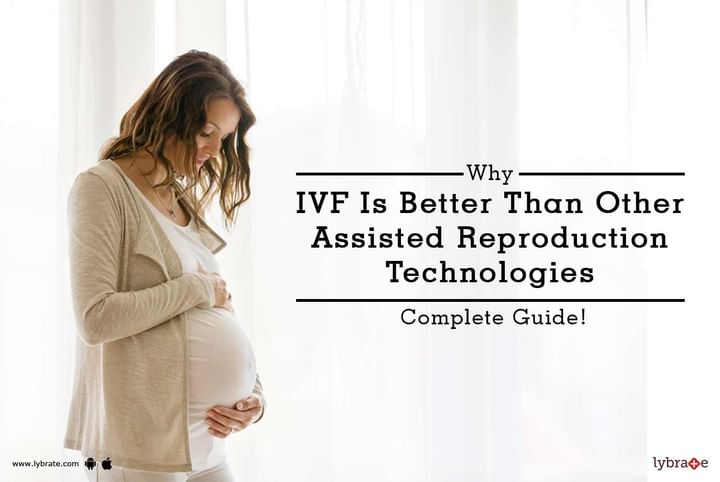Why IVF Is Better Than Other Assisted Reproduction Technologies - Complete Guide!
Assisted reproductive technology is a treatment method for couples, who can’t conceive naturally, to have a child. Assisted reproductive technology is also known as assisted reproductive treatment (ART) and covers a number of treatment options. Depending on the nature of infertility issue, the category of treatment will be suggested.
Some of the treatment options-
IVF:
IVF or in vitro fertilization as a type of assisted reproductive technology that is put into use in a number of circumstances. For women facing pregnancy issues due to blocked fallopian tubes, IVF is the only means of getting pregnant.
Under this treatment method, the eggs are taken from the woman and the sperm from either the partner or donor. The sperm and the egg are then left in the culture dish for fertilization in the laboratory. Due to this step, babies that are born out of IVF are also referred to as test tube babies.
After fertilization and development of the embryo, it is transferred into the woman’s womb. This process is known as embryo transfer. If multiple embryos develop they are frozen for later usage.
Often people are of the opinion that in vitro fertilization is a better assisted reproductive treatment method than the others. And every year more and more people opt for IVF over other assisted reproductive technology methods. In order to better understand why it is necessary to mention a few of the other methods.
OI:
OI also known as ovulation induction is a treatment method that is adopted by women who suffer from irregular ovulation. In this process, the woman is required to take a hormone medication in the form of either an injection or tablet. This medication stimulates the production of hormones. It induces the development of follicles. When your follicles become large, a different hormone is administered that facilitates the release of the egg. When engaged in sexual activity during this time, the possibility of conception is increased.
AI:
Artificial insemination (AI) is a method that treats women who in spite of having healthy and normal fallopian tubes cannot conceive. This can be due to mechanical difficulties such as erectile dysfunction on the part of the male partner. Another reason is structural issues of the penis after undergoing trauma and or surgery.
Artificial insemination can also be used considered when the semen has frozen due to the absence of a male partner or kept frozen prior to the partner’s cancer treatment. If the female partner suffers from irregular menstrual cycle then the AI treatment can also be used in combination with the OI method.
GIFT:
Gamete intrafallopian transfer or gift is another version of IVF which is more natural. The eggs are taken from the woman and put in between two layers of the male sperm within fine tubing. This tube is then transferred within the woman’s fallopian tube where the sperm and the egg fertilize naturally. Often people opt for this method instead of IVF on grounds of religion.
PGD:
PGD or preimplantation genetic disorder is a method that reduces the risk of or completely avoids the transmission of genetic disorders, abnormalities of the chromosome to the child. This is an ideal ART method for couples who already have a family history of genetic diseases.
Surrogacy is a method where the surrogate woman agrees to carry the child of a couple for nine months in her month. After the birth of the child, the surrogate has to hand over the baby to the couple.
Therefore, after stating the details of each ART method it can be inferred that those people who do or have any limitations based on religious grounds can opt for In vitro fertilization because the risks of a procedural mishap are significantly lower.



+1.svg)
